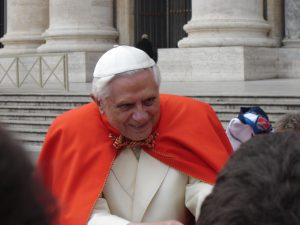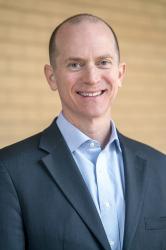
Here is a podcast interview I did recently with my friend Matt Leonard, host of The Art of Catholic and Next Level Catholic Academy.
Matt and I talked about some of the foundational ideas of Christian thinking in contrast with the dominant secular way of seeing the world. As you can see from the title of Matt’s show, The Art of Catholic, this podcast is directed to a Catholic audience, but many of the ideas we discuss are the patrimony of all Christians.
Some of the topics in the interview include:
The thought of Benedict XVI.
A lot of the interview is unpacking some of Benedict XVI’s analysis of the intellectual errors that dominate our thinking based on a lecture I gave on the intellectual foundations of the new evangelization where I laid out Benedict’s analysis of the intellectual crises of contemporary society, his critique, and his replies in the light of the Gospel.
How secularism is not neutral.
This is a common mistake we can easily fall into. We think that a religious view of the world is somehow a prejudiced one and that a secular worldview is neutral. But secularism is not neutral. It has its own particular views of reason, truth, matter, the nature of the human person and so on. A Christian way of seeing the world is not simply secularism with religion sprinkled on top.
The importance of reason and a critique of empiricist rationality.
This is a key theme of Benedict XVI and something I repeatedly stress because it is so important for our understanding of science, politics, technology and ethics. We have limited reason to the empirical, but this idea is incoherent on its own terms. The claim itself is not empirically verifiable.
The nature of truth and why relativism is incoherent.
As then Cardinal Ratzinger explained in his famous homily before the conclave when he was elected pope:
Today, having a clear faith based on the Creed of the Church is often labeled as fundamentalism. Whereas relativism, that is, letting oneself be “tossed here and there, carried about by every wind of doctrine”, seems the only attitude that can cope with modern times. We are building a dictatorship of relativism that does not recognize anything as definitive and whose ultimate goal consists solely of one’s own ego and desires.
We, however, have a different goal: the Son of God, the true man. He is the measure of true humanism. An “adult” faith is not a faith that follows the trends of fashion and the latest novelty; a mature adult faith is deeply rooted in friendship with Christ. It is this friendship that opens us up to all that is good and gives us a criterion by which to distinguish the true from the false, and deceit from truth.
The difference between philosophy and ideology.
Philosophy–from philo and sophos–is the love of wisdom and the pursuit of truth. The opposite of a philosophical mindset in an ideological mindset. Rather than “conforming the mind to reality” as St. Thomas Aquinas defines truth, ideology instead tries to conform reality to the mind of the ideologue.
The Christian understanding of freedom not as radical autonomy, but as aligned with reason and oriented to truth.
There are two dominant visions of freedom today that ironically are often combined. One is that we are not free. There is no free will, and we are merely determined by our genes, our neurology, and our environment. The other is that freedom is merely a raw exercise of the will–radical autonomy. But as Ratzinger points out, radical autonomy apart from reason and truth is the elimination of freedom. He notes that an “irrational will is not a free will.” This understanding of freedom is what he calls a “diabolical freedom.” Radical autonomy does not in the end liberate, but leads to what Lewis calls the “abolition of man.”
You can listen to the interview here.

